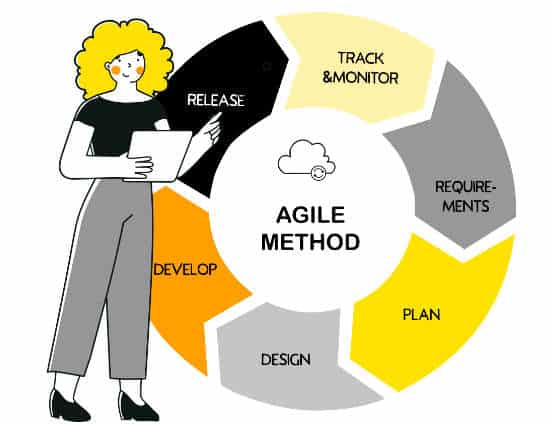Strategy

Psychological Advantages in Coding
What Small Business Owners Should Know
When people hear the word coding, they often imagine something highly technical — a skill reserved for software developers and computer scientists. But what if coding is more than just a way to build websites or apps? What if it’s also a powerful tool for sharpening the mind and boosting cognitive abilities — something that could benefit small business owners and their teams in unexpected ways?
At its core, coding is about problem-solving. It teaches you how to break down complex challenges into smaller, manageable steps — a skill that mirrors the daily realities of running a business. Whether you’re streamlining operations, planning a new marketing strategy, or tackling financial hurdles, the mental frameworks developed through coding can help you think more clearly and strategically.
But the advantages go deeper than just logical thinking. Coding engages the brain much like learning a new language or creating art. It pushes you into a state of flow — that feeling of being deeply focused and productive — and strengthens your ability to recognise patterns, adapt to new information, and work through feedback loops quickly.
For small business owners, these psychological benefits translate into real-world advantages. Stronger problem-solving skills mean faster decision-making. Enhanced pattern recognition can help you spot market trends or inefficiencies in your workflow. And the ability to think both abstractly and practically allows you to balance big-picture vision with the day-to-day details of running a business.
In this article, we’ll explore how the mental habits developed through coding extend beyond the computer screen. You don’t have to be a professional programmer to reap the benefits — simply engaging with coding concepts can strengthen your cognitive toolkit and give your business a hidden edge. Let’s dive into the psychological advantages of coding and why they matter for you and your team.
Cognitive Framework Development
At its core, coding is more than just writing commands for a computer — it’s about building mental frameworks that help you think in a structured, logical way. For small business owners, this kind of thinking is invaluable because it strengthens how you approach problems, plan strategies, and make decisions.
When you learn to code, you start developing mental models — internal “maps” that help you break down complex problems into smaller, manageable parts. This is called problem decomposition. In programming, if an app isn’t working, a developer doesn’t panic — they break the issue into pieces: Is it the user interface? The data processing? The code logic? This methodical breakdown mirrors how you might tackle a business challenge, like why sales are down. Instead of guessing, you might break the problem into categories — marketing, pricing, customer feedback — and address each part systematically.
Another psychological advantage is the ability to think both abstractly and concretely at the same time. Coding requires you to zoom in on tiny details (like fixing a bug in a single line of code) while keeping the bigger picture in mind (how that line fits into the entire program). This skill transfers directly into running a business. You need to focus on daily tasks — managing inventory, responding to emails — without losing sight of long-term goals like scaling operations or expanding into new markets.
Then there’s pattern recognition — a crucial part of both coding and business. Programmers constantly spot recurring patterns in their code, which helps them solve problems faster the next time they arise. As a business owner, this kind of thinking helps you notice trends: Maybe you realise customers tend to abandon their carts at a particular step in the checkout process or that certain social media posts consistently drive engagement. Recognising these patterns allows you to act strategically, doubling down on what works and fixing what doesn’t.
Ultimately, coding trains your brain to approach challenges with structure and clarity. It teaches you how to break big issues into smaller tasks, balance details with overarching goals, and identify trends — all of which are critical skills for running a successful small business. You don’t have to be a full-time programmer to build these cognitive frameworks. Just exploring coding concepts can sharpen the way you think and problem-solve — and that’s a competitive advantage any entrepreneur can use.

The Flow State Advantage
One of the most powerful psychological benefits of coding is its ability to trigger a flow state — that feeling of being so deeply focused on a task that time seems to slip away. It’s the same experience artists have when they lose themselves in creating a painting or designers feel when crafting a perfect layout. But flow isn’t limited to creative fields — coding taps into this state just as effectively, offering small business owners a mental boost that can transform both productivity and problem-solving.
Flow happens when you’re working at the edge of your abilities — a task is challenging enough to keep you engaged but not so hard that it becomes frustrating. Coding naturally creates these conditions. When writing code, you’re constantly balancing logic, creativity, and precision. One moment you’re structuring a solution step by step, and the next, you’re troubleshooting a bug — fully immersed in the process. This deep concentration sharpens your ability to focus for longer periods without distraction, a skill that directly benefits the daily demands of running a business.
What makes flow so valuable is how it impacts productivity. Studies show that when people enter a flow state, they work faster and more efficiently. For small business owners, this might mean developing a marketing campaign, planning finances, or brainstorming a new product — all with a heightened sense of clarity and momentum. Flow doesn’t just make tasks feel easier; it also fuels a sense of progress, which boosts motivation and reduces burnout.
Beyond productivity, flow accelerates learning. When you’re coding, the immediate feedback loop — writing code, testing it, seeing the result — reinforces new knowledge quickly. This rapid cycle of trial and error strengthens neural connections, helping you absorb concepts faster. The same mental mechanism applies to learning new business tools, strategies, or skills — the more immersive and responsive the process, the quicker you grow.
Perhaps the most overlooked benefit of flow is the deep satisfaction it brings. Completing a challenging coding task — finally fixing a stubborn bug or building a working feature — delivers a sense of achievement that’s incredibly motivating. For business owners, experiencing these moments, whether through coding or other mentally engaging work, can reignite passion and creativity.
Incorporating flow into your workday doesn’t mean becoming a full-time programmer — it means finding tasks that stretch your mind and keep you fully engaged. Exploring coding, even at a basic level, can help build the mental muscle for focus, learning, and creative problem-solving — all essential ingredients for running a thriving small business.
“The purpose of psychology is to give us a completely different idea of the things we know best.”
– Paul Valery
The Feedback Loop Mechanism
One of the most powerful — and often underrated — psychological advantages of coding is the built-in feedback loop. Every time you write a line of code, you get an immediate response: either it works, or it doesn’t. If it doesn’t, you tweak it, run it again, and repeat the process until you get the desired result. This fast, continuous cycle of action and response creates a dynamic learning environment that strengthens cognitive skills — and for small business owners, this way of thinking can be a game-changer.
 The beauty of the feedback loop lies in its speed. Unlike long-term projects where results might take weeks or months to surface, coding provides instant feedback. When you write a piece of code and hit “run,” you immediately see the output — success, error messages, or unexpected results. This direct cause-and-effect relationship mirrors the trial-and-error nature of running a business. Whether you’re testing a new product, adjusting ad strategies, or streamlining workflows, the ability to quickly gather feedback, make adjustments, and test again is crucial to growth.
The beauty of the feedback loop lies in its speed. Unlike long-term projects where results might take weeks or months to surface, coding provides instant feedback. When you write a piece of code and hit “run,” you immediately see the output — success, error messages, or unexpected results. This direct cause-and-effect relationship mirrors the trial-and-error nature of running a business. Whether you’re testing a new product, adjusting ad strategies, or streamlining workflows, the ability to quickly gather feedback, make adjustments, and test again is crucial to growth.
Psychologically, tight feedback loops accelerate learning. Every time you debug a piece of code, your brain processes the mistake, searches for a solution, and rewires itself to avoid the same error in the future. These rapid cycles strengthen neural connections, helping you learn faster and retain information more effectively. The same cognitive process applies when you track business metrics — like noticing a sudden drop in website traffic, experimenting with different solutions, and iterating until the issue is resolved. The quicker the feedback, the sharper your problem-solving becomes.
What’s more, this process builds resilience. In coding, encountering errors isn’t a setback — it’s part of the workflow. Programmers expect bugs and use them as signals to refine their code. Imagine applying that mindset to your business: seeing obstacles not as failures but as feedback, pushing you to adapt and improve. This shift in thinking reduces frustration and fosters a growth mindset, where every setback is simply another step toward a solution.
For small business owners, adopting this feedback-driven approach means becoming more agile and responsive. It encourages a culture of experimentation — testing ideas, analysing results, and iterating quickly — all essential for staying competitive in a fast-moving market.
Even if you’re not a full-time coder, engaging with programming concepts helps strengthen this mental muscle. The more comfortable you become with fast feedback and constant iteration, the more adaptable and innovative you’ll be — both in your business strategies and in your problem-solving mindset.
Cross-Domain Transfer Benefits
One of the most surprising advantages of learning to code is how its mental benefits spill over into other areas of life and work. Coding doesn’t just teach you how to write programs — it reshapes the way you think, helping you approach problems, processes, and strategies with more structure and logic. For small business owners, these transferable skills can be incredibly valuable, influencing everything from decision-making to daily operations.
At the heart of coding is logical thinking. When you write code, you follow a step-by-step process: define the problem, break it down into smaller parts, and build a solution using clear rules. This methodical approach directly enhances your general problem-solving skills. In business, challenges rarely come with obvious solutions. Whether you’re figuring out why sales have dropped or deciding how to allocate your budget, the ability to tackle issues logically — breaking them into manageable components — allows for clearer thinking and smarter solutions.
 Then there’s computational thinking — a way of solving problems by identifying patterns, abstracting concepts, and creating algorithms. It’s not just for programmers. For small business owners, computational thinking helps you make sense of data, spot trends, and forecast outcomes. For example, if you’re analysing customer feedback or tracking marketing metrics, this mindset allows you to step back, look for patterns, and create systems for testing and improving strategies. It’s about moving beyond guesswork and approaching decisions with a data-driven, analytical mindset.
Then there’s computational thinking — a way of solving problems by identifying patterns, abstracting concepts, and creating algorithms. It’s not just for programmers. For small business owners, computational thinking helps you make sense of data, spot trends, and forecast outcomes. For example, if you’re analysing customer feedback or tracking marketing metrics, this mindset allows you to step back, look for patterns, and create systems for testing and improving strategies. It’s about moving beyond guesswork and approaching decisions with a data-driven, analytical mindset.
Another key concept is procedural thinking — breaking tasks into a series of clear, ordered steps. In coding, every program runs through a precise sequence of instructions. In business, procedural thinking helps streamline workflows, making complex projects feel more organised and achievable. Whether you’re launching a new product, onboarding employees, or planning a social media campaign, thinking in clear, structured steps keeps you focused and prevents tasks from becoming overwhelming.
What makes these cognitive skills so powerful is their flexibility. Logical, computational, and procedural thinking don’t just apply to writing code — they apply to running a business, managing teams, and solving real-world problems. Coding trains your brain to approach challenges methodically, test ideas iteratively, and execute plans step by step — all essential skills for keeping your business agile and effective.
Even a basic understanding of coding concepts can sharpen the way you think and operate. It’s not about becoming a software developer — it’s about developing a problem-solving mindset that helps you tackle challenges, spot opportunities, and make smarter decisions in every area of your business.

The Bilingual Brain Effect
Learning to code is often compared to learning a new language — and for good reason. Just like mastering a foreign language, picking up a programming language like Python, JavaScript, or HTML involves understanding rules, structure, and syntax. But beyond the technical side, there’s a fascinating cognitive bonus: coding can rewire your brain in ways similar to becoming bilingual, offering mental benefits that extend far beyond the screen.
One of the most notable advantages is enhanced cognitive flexibility — the ability to switch between different ways of thinking depending on the situation. When you code, you constantly shift between abstract ideas and concrete commands, moving from high-level concepts (like building a website) to precise instructions (writing the code to make a button work). This mental “gear-shifting” strengthens your brain’s adaptability, a skill that’s crucial for small business owners who need to pivot strategies, handle unexpected challenges, and think creatively about solutions.
Coding also improves working memory — the mental space where you store and manipulate information in real-time. Just like a language learner might remember grammar rules while forming a sentence, a programmer holds multiple elements in their mind at once: variables, loops, and functions, all while keeping track of how they interact. For business owners, stronger working memory means being able to juggle multiple projects, process new information quickly, and make decisions with greater clarity.
Another key benefit is strengthened attention control. Coding requires intense focus — a single misplaced character can break a program, so your brain learns to filter out distractions and zero in on details. This heightened ability to concentrate is a powerful tool in the business world, helping you stay locked into tasks like strategy planning, financial analysis, or crafting clear communication, even when your day is packed with competing demands.
Finally, there’s metalinguistic awareness — an understanding of how languages (including programming languages) work beneath the surface. Just as bilingual individuals develop a deeper awareness of grammar and sentence structure, coders gain insight into how systems are built and how rules interact. This structured way of thinking can help small business owners design better processes, communicate ideas more clearly, and create efficient workflows.
You don’t have to master coding to experience these mental boosts. Even learning basic programming concepts can sharpen your cognitive skills, making you more adaptable, focused, and strategic. Just like picking up a second language, coding expands your mental toolkit — a hidden advantage for anyone running a business in today’s fast-paced world.

The Psychological Edge: Why Coding Sharpens the Mind and Strengthens Your Business
Coding isn’t just about building apps or websites — it’s about building a sharper, more agile mind. As we’ve explored, the psychological advantages of coding extend far beyond the screen. From developing structured cognitive frameworks to fostering flow states, strengthening feedback loops, and enhancing cross-domain thinking, coding equips small business owners with a unique mental toolkit. But what makes coding especially powerful is how it fine-tunes certain psychological strengths in ways that few other activities do.
One standout advantage is the development of systematic, structured thinking. While many problem-solving methods rely on intuition or trial and error, coding requires a disciplined, methodical approach. Every piece of code must follow a clear logic — there’s no room for guesswork. This constant practice of structuring thoughts and organising processes directly translates into better business strategies. Whether you’re planning a product launch or designing a customer journey, thinking like a programmer helps you break down goals into step-by-step actions, ensuring nothing is left to chance.
Another unique benefit is explicit rule-following. Coding teaches you to work within a set of rules — whether it’s syntax, algorithms, or data structures — while still finding creative solutions within those boundaries. This balance between discipline and innovation strengthens your ability to follow processes without stifling creativity. For small business owners, this mindset is invaluable. It helps you build repeatable systems for daily operations while staying flexible enough to adapt when new opportunities or challenges arise. You learn how to create reliable workflows, stick to business protocols, and still think outside the box when needed.
Then there’s the satisfaction of creating functional systems — a psychological boost that’s surprisingly motivating. In coding, there’s a clear sense of accomplishment when you solve a problem or build something that works. That feeling — watching a program run smoothly after hours of debugging — fuels motivation and builds resilience. It’s the same sense of reward you get when you crack a tough business problem, launch a successful campaign, or streamline a complicated process. This cycle of effort, feedback, and success reinforces a growth mindset, keeping you motivated to tackle bigger challenges in both coding and business.
What’s important to remember is that you don’t have to become a professional programmer to unlock these benefits. Even a basic understanding of coding concepts can sharpen your thinking and reshape how you approach problems. It’s not about writing flawless code — it’s about training your brain to think logically, embrace feedback loops, and stay adaptable.
For small business owners, this psychological edge can make a real difference. It means approaching challenges with clarity, structuring ideas methodically, and iterating quickly — all while maintaining the creativity and flexibility needed to grow. Coding doesn’t just teach you how to build software; it teaches you how to build better strategies, processes, and solutions for your business.
So, whether you’re experimenting with simple coding exercises, automating small tasks, or just exploring programming concepts, know that you’re doing more than picking up a technical skill. You’re rewiring your brain, strengthening your problem-solving abilities, and giving yourself a mental advantage that can ripple through every part of your business.
In a fast-paced, ever-evolving world, that’s not just a bonus — it’s a powerful competitive edge.

